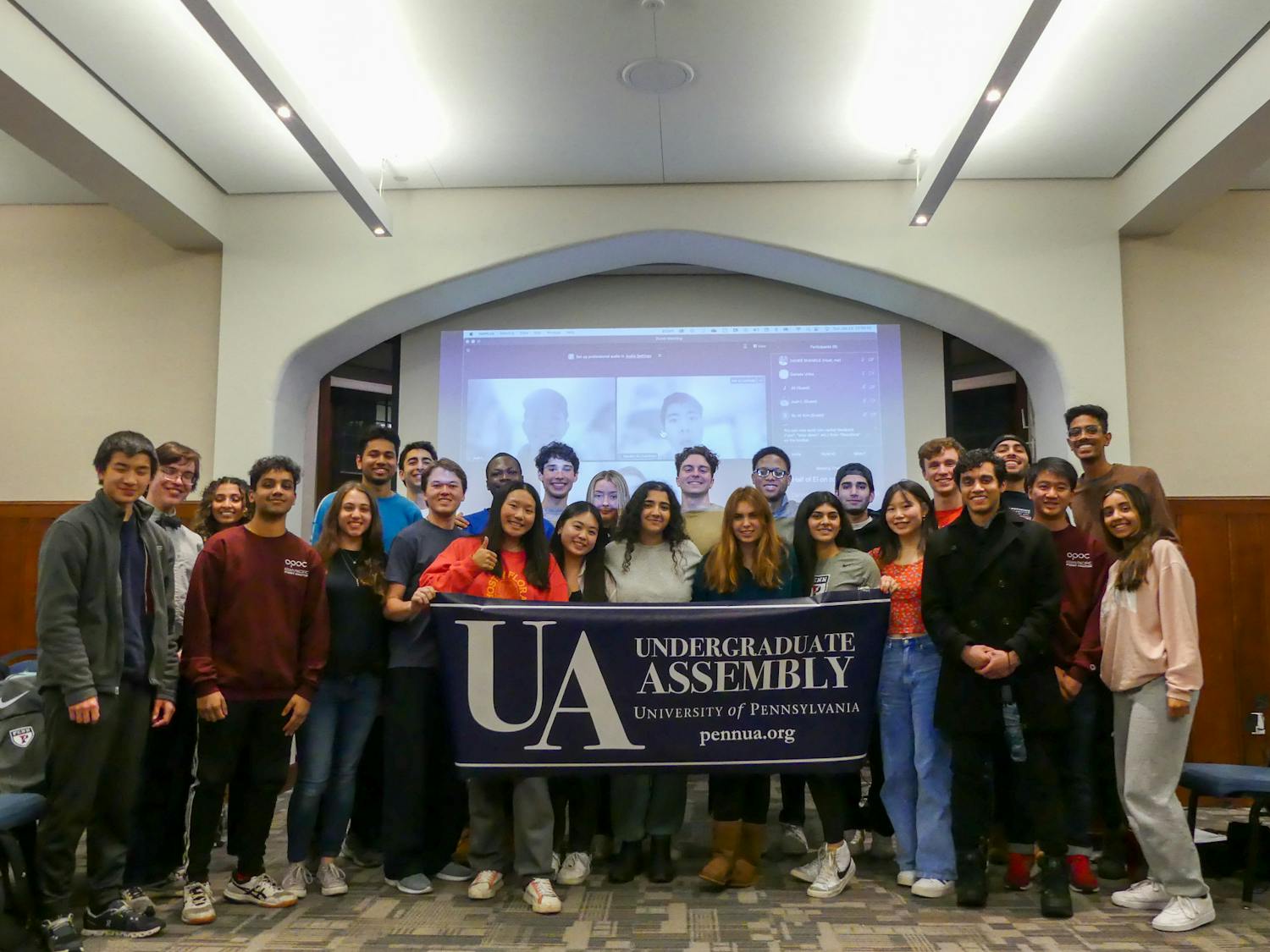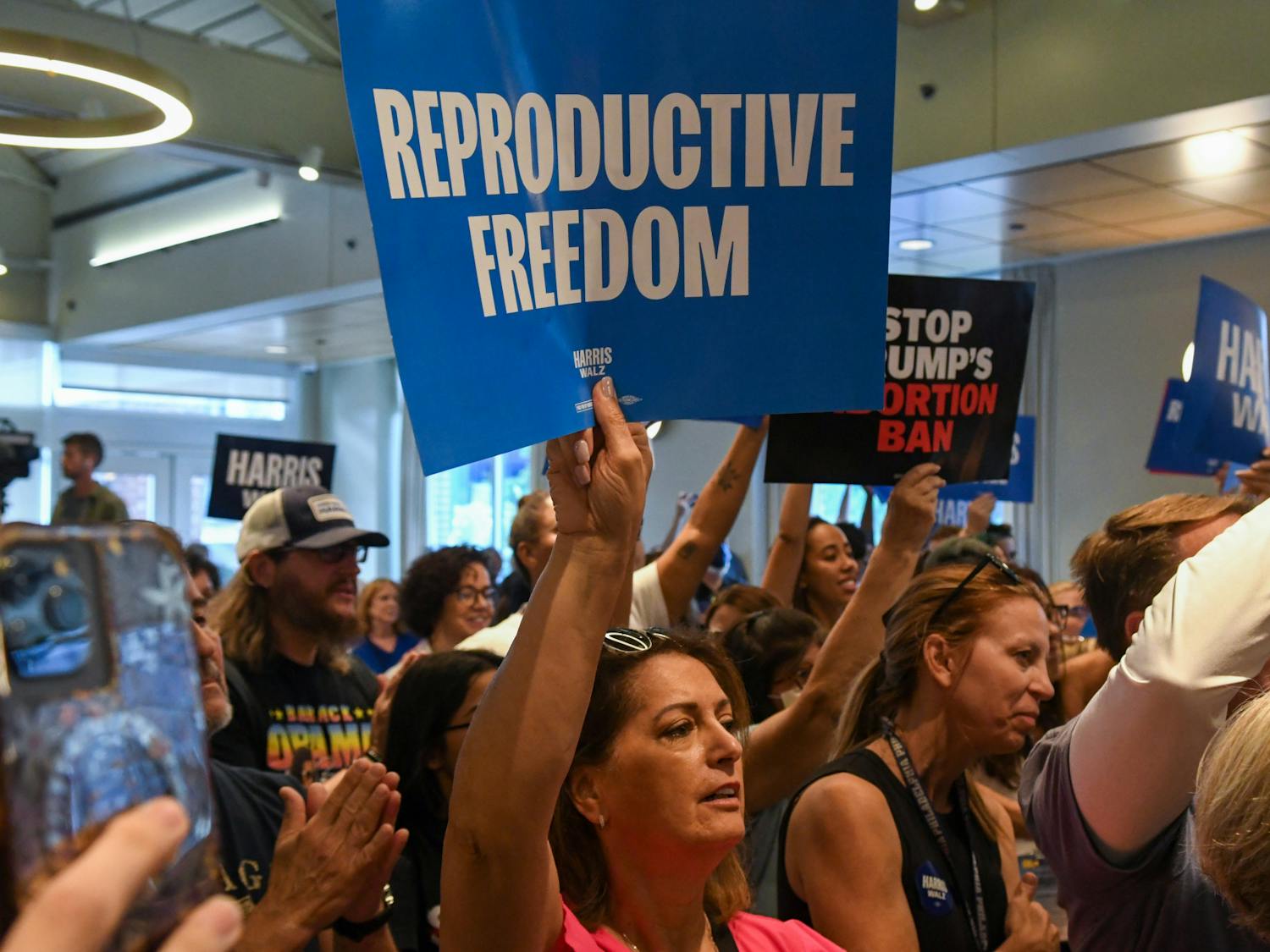The line has gone dead. A distressed friend just rang you - it's a flunked midterm, it's a nasty split-up, it's a death in the family. Whatever it is, it's all too much.
He talked of hurting himself and mid-sentence, mid-blubber, you're disconnected - hello, hello? You ring him back but get no answer. What do you do now? You're spooked. Was something lost in translation, a sniffle you couldn't interpret? Who you gonna call.Bill Murray?
The situation is very serious and not uncommon: Counseling and Psychiatric Services (CAPS) get two to four calls a night, according to Ilene Rosenstein, director of CAPS.
In comparison to colleges that fail to provide all-hours hotlines for on-campus support or a walk-in counseling service, care at Penn is good. PennPortal provides all-hours lines to Penn police, CAPS and a suicide-prevention hotline (operated independently of Penn).
Such breadth of support is admirable, but it comes in discrete parts, parts that overlap, and this can cause confusion both within and outside of the system. In fact, each of the three services could be helpful in the situation above. So, who would you call?
The last thing in the world you want is a menu. Time is running out.
Can CAPS quickly locate and send a trained counselor to him? Do I want a police officer in a luminous jacket, a non-specialist, to turn up at the door? I don't want to embarrass or shock him. You might worry that on calling Penn police you'll just get referred to CAPS and vice versa.
I polled 47 students and employees at Penn, presenting each with the scenario above and asking them to rank Penn police, CAPS and the suicide hotline by giving a one to the first number they'd call, two to the next and three to the last. The scores: Penn police: 75; suicide hotline: 92; CAPS: 115.
Many found it hard to choose. This is confusing for the caller and it's a lot to bear, not to mention both inefficient and frustrating.
"It's a bit confusing. I don't have complete knowledge of what each is supposed to handle," admitted College freshman Robert DeSocio, fresh out of Penn's orientation seminars.
How is it supposed to work? I met Mark Dorsey, chief of University Police, and presented him with my scenario and was told, categorically, to call Penn Police; if it's an emergency, dial 511. He informs me that the Department of Public Safety coordinates with CAPS via its Special Services sub-division, headed by Patty Brennan.
So I go to Brennan. She suggests that in an emergency, under pressure of time, you should call 911, not Penn police.
Something tells me Chief Dorsey wouldn't agree.
Special Services would not intervene in cases like this, unless, of course, the suicide attempt is successful - otherwise it's for CAPS. We're not counselors, Brennan explains, we're police.
So is it 911 or CAPS?
If you phone CAPS, you'll be referred to Penn Police, she thinks, but then checks for me and, in fact, you'd bypass Penn Police, via Penn Health Systems, and reach a CAPS counselor on-call.
Apparently, it cuts out the middle-man, it's for patient confidentiality. So Penn Police expect both that CAPS will refer callers to them and that CAPS will cut them out of the loop to save time.
Finally, I talk to Rosenstein and here I get a sense of dissatisfaction similar to my own. She hopes people would call CAPS first. She envisages the CAPS hotline helping patients, concerned friends and even hospitals seeking to admit someone in distress.
CAPS can locate a caller (using Penn Police) and send a counselor to them (using University Life's Crisis Management team) and does so roughly twice a year.
These capacities, however, are both poorly publicized and leave CAPS's resources overstretched.
This isn't about poor dining hall food or expensive chairs - students' lives are at stake and Penn lacks a coherent, efficient response mechanism.
A simple flow-chart that indicates whom to call and when - in this instance directing students to CAPS, the organization with the most expertise - might help. Alternatively, a common emergencies switchboard to field all calls and redirect them as required is likely to raise efficiency. Simple, cheap ways to untangle this knotted. dangerous mess.
Harry Lee is a second-year Economics Ph.D. candidate from Portsmouth, England. His e-mail address is lee@dailypennsylvanian.com. The Pondskater appears on Wednesdays.








